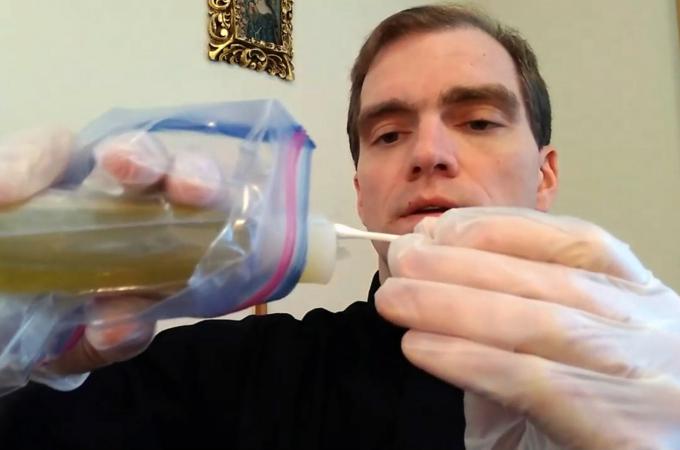Archdiocese plans new priest teams for anointing COVID-19 patients
BRAINTREE -- With coronavirus and hospitalization rates climbing, the Archdiocese of Boston is planning to reconstitute the team of priests to bring the sacraments to COVID-19 patients in hospitals.
A similar team operated in the spring, when the archdiocese trained approximately 20 priests to minister exclusively to coronavirus patients, providing the anointing of the sick and the Apostolic Pardon to those who were critically ill and dying. At that time, public Masses and parish activities were suspended, so fewer priests were needed in the parishes. This allowed them to live in isolation to avoid carrying the virus between hospitals and parish communities.
Now, however, churches are once again open, so parish priests cannot be removed to live in isolation as they did then.
"Because the parishes haven't been closed, we're going to have to reformat what that looks like. We won't have people who are free to do something completely different," MC Sullivan, the archdiocese's chief healthcare ethicist, said in a Dec. 15 interview.
In light of this, she said, they will need to create a "more integrative model."
"That will probably consist of having some designated priests, and teaching them how to be safe even if they can't be isolated as they were last spring," she said.
After the "surge" of coronavirus cases in the spring, the number of cases declined over the summer. The special team disbanded in July, and since then, priests have been administering the Sacrament of the Sick to people in their own areas while living in their parishes.
"We don't want to take away from that. We just want to support it," Father Robert M. Blaney, the archdiocese's secretary for ministerial personnel, said Dec. 15.
Experts predicted that the number of cases would surge again in the winter, as cold weather forced people to move activities back indoors. With that in mind, the organizers of the anointing team knew they might have to again designate priests to deliver the sacraments to coronavirus patients.
Sullivan said the coronavirus positivity rate is rising throughout the state, though the speed of this increase depends on location. She cited the increases in emergency room visits, hospital admissions, and intensive care unit occupancies. The number of "red zone" towns and cities in Massachusetts is also growing in spite of changes in the formula for designating them.
"It's increasing everywhere, but how fast depends on where you are," Sullivan said.
She said that some hospitals have already begun to restrict visitors. In the spring, it was restrictions on hospital staff members, such as social workers and chaplains, that inspired the creation of the first anointing team.
"We're trying to anticipate any further changes like that at the hospital level and have our priests ready," Sullivan said.
Each hospital has its own protocols that priests must follow to minimize contact with the patient they anoint. Typically, the priest must wear personal protective equipment, stand in the doorway to say the prayers, and only approach the patient to anoint them with chrism oil on a cotton swab. Anything he takes into the room -- the PPE, the cotton swab, and papers with the prayers -- is incinerated afterward.
Sullivan said that hospitals are "very enthusiastic" about having priests be available for anointing patients.
"They were so pleased with what happened the first time around. I think they realize, (as) we made the case to them, that spiritual care for a seriously ill Catholic is as important as anything that we can offer physiologically in terms of treatment," Sullivan said.
From its inception in April to its disbandment in July, over 1,100 people were anointed through the special ministry, and none of the participating priests were infected.
"We're hoping and hopeful that we can be that successful again," Sullivan said.



















